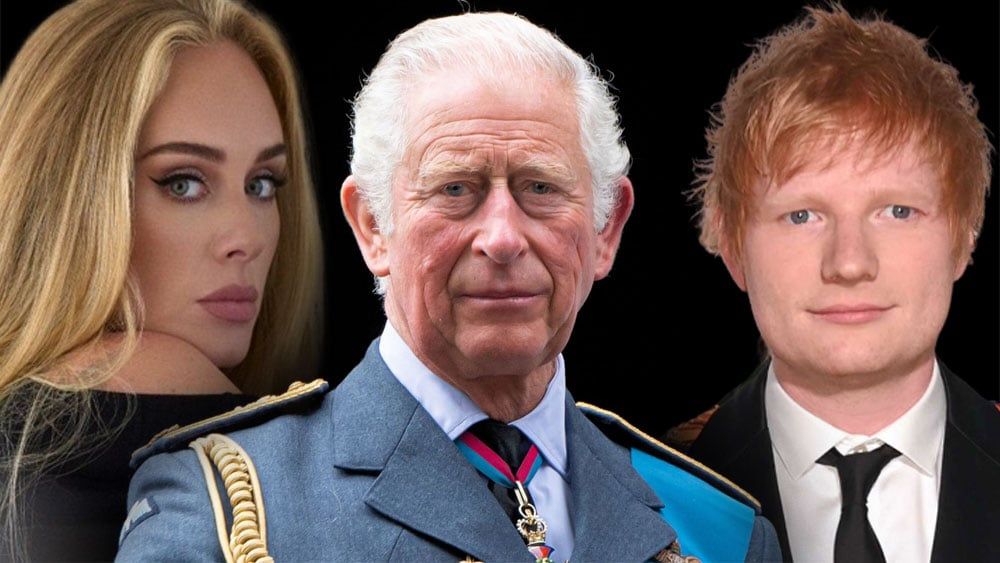 A king’s coronation holds immense significance as it marks the official crowning of a monarch, symbolizing their ascent to power and the beginning of their rule. Throughout history, these events have been both grand celebrations and solemn ceremonies, characterized by tradition and pomp. The historical context in which a coronation takes place further adds to its significance, reflecting the political and cultural dynamics of a specific era. From ancient civilizations to modern times, coronations have served as a powerful display of authority, legitimacy, and the continuity of a nation’s monarchy. Understanding the background of such events allows us to appreciate the rich tapestry of history and the enduring legacy of royal traditions.
A king’s coronation holds immense significance as it marks the official crowning of a monarch, symbolizing their ascent to power and the beginning of their rule. Throughout history, these events have been both grand celebrations and solemn ceremonies, characterized by tradition and pomp. The historical context in which a coronation takes place further adds to its significance, reflecting the political and cultural dynamics of a specific era. From ancient civilizations to modern times, coronations have served as a powerful display of authority, legitimacy, and the continuity of a nation’s monarchy. Understanding the background of such events allows us to appreciate the rich tapestry of history and the enduring legacy of royal traditions.
In ancient times, the coronation of a king was often deeply rooted in religious rituals and beliefs. The ruler’s divine right to govern was emphasized as they were anointed and blessed by spiritual leaders, symbolizing their connection to the gods. These ceremonies were pivotal in establishing the king’s legitimacy and ensuring the loyalty of the people. The Egyptian pharaohs, for example, were crowned amidst elaborate rituals, reaffirming their status as divine rulers and representatives of the gods on earth.
As societies evolved, so did the nature of coronations. In medieval Europe, the crowning of kings became intertwined with Christianity, as the Church played a central role in legitimizing monarchs. The anointing with holy oil and the placing of the crown on the king’s head were seen as a sacred act, sanctioning their authority and reinforcing their duty to God and the Church. These ceremonies were often accompanied by feasts, pageantry, and festivities that brought together nobles, clergy, and commoners, fostering a sense of unity and loyalty to the monarchy.
During the Renaissance and Enlightenment periods, the concept of monarchy underwent significant changes. Monarchs sought to consolidate their power by emphasizing their connection to the state and the welfare of their subjects. Coronations became more secular, focusing on the ruler’s role as a patron of the arts, sciences, and commerce. The festivities became increasingly elaborate, showcasing the wealth and prestige of the monarchy, as well as the splendor of the nation.
In modern times, the significance of coronations has evolved further, reflecting changing political landscapes and the rise of constitutional monarchies. While the pomp and grandeur remain, the ceremonies now emphasize the king or queen’s role as a ceremonial figurehead rather than a political authority. Coronations have become opportunities to unite the nation and celebrate its heritage, fostering a sense of national pride and unity.
The background of a king’s coronation offers us a glimpse into the past, reminding us of the enduring power and allure of monarchy. These events, rooted in tradition and history, continue to captivate our imaginations and connect us to a rich tapestry of culture and heritage. As we witness the coronations of today, we not only celebrate the ascension of a new sovereign but also pay homage to the legacy of those who came before, ensuring the continued relevance and fascination of this centuries-old tradition.
Adele’s Decision:
Adele, the acclaimed British singer-songwriter, has recently made headlines for her decision to reject a request to perform at the king’s coronation. This surprising move has left fans and royal enthusiasts wondering about her reasons behind this refusal. While Adele herself has not provided an official statement, speculations have surfaced, pointing towards a number of factors that may have contributed to her decision.
One of the main reasons that could have influenced Adele’s choice is her busy schedule. As one of the most successful artists of her generation, Adele’s calendar is typically packed with various performances, concerts, and promotional events. A royal coronation, with its extensive preparations and grandeur, would require a significant amount of time and commitment. Given her existing commitments and the potential impact on her personal life, it is understandable that Adele may have felt unable to take on such a demanding project.
Personal priorities could also have played a significant role in Adele’s decision. The singer is known for her strong sense of family and motherhood, often prioritizing these aspects of her life over professional endeavors. Adele has spoken openly about her devotion to her son, and it would not be surprising if she chose to dedicate her time and energy to him, rather than undertaking a high-profile performance. This alignment with her personal values may have influenced her decision to decline the request from the royal family.
Furthermore, artistic considerations may have contributed to Adele’s refusal. As an artist, Adele is known for her unique style, powerful vocals, and emotionally charged performances. The nature of a royal coronation, with its formalities and adherence to tradition, may not have provided the creative freedom that Adele seeks in her work. It is plausible that she desired to maintain her artistic integrity and preferred to focus on projects that allowed her to express herself fully.
In addition to these potential factors, it is important to remember that artists, like anyone else, have the right to make choices based on their own preferences and needs. Adele’s decision should be respected, and it serves as a reminder that celebrities are not obligated to fulfill every request that comes their way, regardless of the significance or prestige associated with it.
Ultimately, while we may never know the exact reasons behind Adele’s rejection of the king’s coronation performance, it is reasonable to assume that a combination of scheduling conflicts, personal priorities, and artistic considerations played a role in her decision. As fans, we can only support and appreciate Adele’s choices, as they reflect her dedication to her craft, her family, and her personal fulfillment.
Ed Sheeran’s Decision: Highlighting His Rationale for Declining the Invitation to Perform at the King’s Coronation
Ed Sheeran, the renowned singer-songwriter, has made headlines recently with his decision to decline an invitation to perform at the much-anticipated coronation of the king. This unexpected move left fans and the media puzzled, wondering what could have driven Sheeran to turn down such a prestigious opportunity. In this article, we delve into the reasons behind his decision and shed light on the possible factors that influenced his choice.
First and foremost, one factor that likely played a significant role in Sheeran’s decision is his artistic integrity and desire for creative control. Being known for his unique style and heartfelt songwriting, Sheeran may have felt that performing at a grand event like a coronation could restrict his artistic freedom. Perhaps he was concerned that conforming to the expectations of such a formal occasion might compromise his authenticity as an artist. By declining the invitation, Sheeran may have opted to preserve his artistic vision and maintain a sense of independence in his musical career.
Another aspect that could have influenced Sheeran’s choice is conflicting commitments. As one of the most successful musicians of his generation, Sheeran undoubtedly has a busy schedule filled with performances, recording sessions, and promotional activities. It is plausible that the timing of the coronation clashed with other professional obligations, making it impossible for him to commit fully to the event. The decision to decline could have been a practical one, ensuring that Sheeran could fulfill his existing commitments without overextending himself.
Furthermore, personal beliefs may also have factored into Sheeran’s rationale for declining the invitation. While the specific beliefs in question have not been publicly disclosed, it is not uncommon for artists to take stands on various social or political issues. Sheeran, known for his philanthropic efforts and advocacy, might have found himself at odds with certain aspects associated with the monarchy or the event itself. In such cases, declining the invitation becomes a way to remain true to one’s values and avoid any potential conflicts or controversies.
Ultimately, Ed Sheeran’s decision to decline the invitation to perform at the king’s coronation can be attributed to a combination of factors. His desire for creative control, conflicting commitments, and personal beliefs likely all played a part in shaping his choice. While fans may have been disappointed by the news, it is essential to respect Sheeran’s autonomy as an artist and his right to make decisions that align with his principles. As we eagerly await his next musical endeavor, it is evident that Sheeran’s commitment to his craft and staying true to himself remain at the forefront of his choices.
Public Reaction: Explore the public’s response to Adele and Ed Sheeran’s decision, including both positive and negative sentiments. Analyze the impact of their choices on their fanbase and the wider community.
Adele and Ed Sheeran, two of the biggest names in the music industry, have recently made a decision that has sparked a wide range of reactions from the public. Their choice to take a break from their successful careers has been met with mixed sentiments, with both positive and negative feedback pouring in from their dedicated fanbase and the wider community.
On one hand, many fans have expressed their support for Adele and Ed Sheeran’s decision to step away from the spotlight. These fans understand the toll that fame and constant work can take on an artist, and they believe that everyone deserves a break to recharge and focus on their personal lives. Adele, known for her soulful ballads, and Ed Sheeran, famous for his heartfelt lyrics, have undoubtedly poured their hearts and souls into their music. Thus, their fans recognize the importance of taking time off to maintain their artistic integrity and mental well-being.
However, not everyone is thrilled about this announcement. Some fans, who have been eagerly awaiting new music from their favorite artists, feel disappointed and frustrated. Adele and Ed Sheeran have released hit after hit, and their absence will undoubtedly leave a void in the music industry. These fans argue that artists have a responsibility to their fans, and taking an extended break may not align with that commitment. Moreover, some fear that this hiatus could lead to a decline in popularity and relevance for both artists as other musicians seize the opportunity to fill the void left by their absence.
Beyond their fanbase, the wider community has also chimed in with their perspectives on Adele and Ed Sheeran’s decision. Many individuals are supportive of this choice, recognizing the importance of mental health and work-life balance. The pressure and demands of being in the public eye can be overwhelming, and taking a step back can serve as a positive example for others facing similar challenges. Adele and Ed Sheeran’s decision to prioritize their well-being can inspire others to do the same, fostering a healthier and more understanding society.
However, there are critics who argue that artists have a responsibility to use their platform for the greater good. Adele and Ed Sheeran have had a significant impact on their communities and have been vocal about various social issues. Some believe that by taking a break, they are neglecting their duty to use their fame and talent to bring about positive change. These critics argue that artists should continue to create thought-provoking music and use their influence to address important societal matters, even during challenging times.
In conclusion, the public’s reaction to Adele and Ed Sheeran’s decision to take a break from their music careers has been both positive and negative. While some fans understand and support their need for a hiatus, others feel let down and worry about the impact on their popularity. The wider community is divided as well, with some appreciating the focus on mental health and well-being while others question the artists’ responsibility to their fans and society. Ultimately, Adele and Ed Sheeran’s choices will continue to stir conversations and shape the way we perceive the balance between an artist’s personal life and their public persona.
The recent news of Adele and Ed Sheeran’s rejection to perform at the upcoming royal event has sparked immense speculation and debate. As two of the most successful and influential artists in the music industry, their decision not only highlights their individual priorities but also carries significant implications. Firstly, the selection of alternative performers becomes a focal point. With Adele and Ed Sheeran’s refusal, the organizers will undoubtedly have to consider other talented musicians who can captivate the audience and maintain the event’s grandeur. This may offer an opportunity for emerging artists to showcase their talent on a prestigious platform and gain exposure to a wider audience. Alternatively, established artists who were not initially considered for the event may have the chance to step in and seize the moment. Regardless, the replacement performers will need to possess the charisma and talent that Adele and Ed Sheeran are renowned for in order to maintain the event’s appeal.
Beyond the immediate impact on the performers, Adele and Ed Sheeran’s rejection also sends a powerful message to both the monarchy and the music industry. The decision reflects their desire to prioritize personal beliefs and values over external recognition or obligations. In an era where artists are often expected to conform to certain expectations and perform at high-profile events, their refusal challenges the notion that success is solely defined by one’s association with prestigious platforms. It emphasizes the importance of artistic integrity and staying true to oneself, even in the face of societal pressure.
Furthermore, the significance of Adele and Ed Sheeran’s decision extends beyond the realm of music. Their rejection reflects the shifting landscape of contemporary culture, where individuals are increasingly questioning traditional institutions and norms. This vocal act of defiance resonates with a generation that values authenticity and social consciousness. It serves as a reminder that artists have the power to influence and inspire change, not just through their music but also through their actions and decisions. By refusing to perform at this royal event, Adele and Ed Sheeran are making a statement about their values and principles, setting an example for others to do the same.
In conclusion, the consequences of Adele and Ed Sheeran’s rejection are multi-faceted and far-reaching. From the selection of alternative performers to the message it sends to the monarchy and the music industry, their decision holds significant implications. It prompts us to reflect on the evolving dynamics of contemporary culture, where individuality and authenticity are increasingly valued. Ultimately, Adele and Ed Sheeran’s refusal serves as a reminder that artists possess the power to shape narratives, challenge norms, and inspire change, both within and beyond the realm of music.



